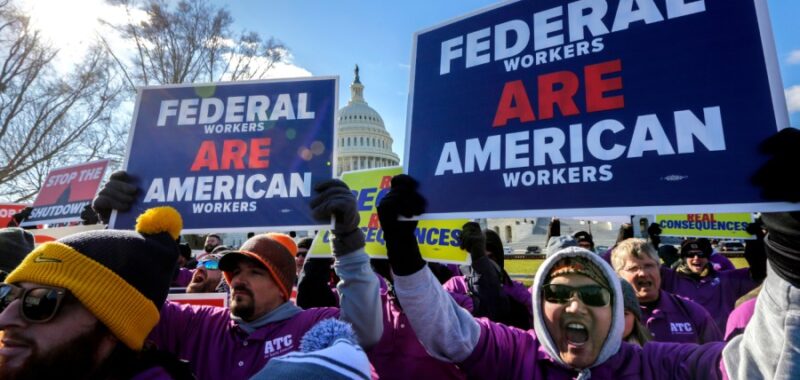
One of President Trump’s early second-term executive orders requires all federal departments and agencies to “terminate remote work arrangements and require employees to work in-person.”
Trump left department and agency heads wiggle room to “make exemptions they deem necessary,” and to implement the order “as soon as practicable.” But the president’s message is clear: COVID-era work-from-home options should end for the federal workforce.
This measure was met with applause from many, including some on the right who jeered at complaining federal employees to get back into the office like everyone else. Others sympathized with government workers suddenly scrambling for child care or facing brutal commutes after years of arranging their lives around working from home.
It’s important to understand the particulars of the federal employment system that makes remote work so problematic.
Federal employees, unlike nearly three-quarters of American workers, are not employed at-will. Instead, government workers are managed through a knotty and complicated system governed by 100 years of special job protections from Congress, alongside public employee collective bargaining. This despite President Franklin Roosevelt’s stern warning that such private-sector union labor tactics “cannot be transplanted into the public service.”
It can take a Herculean effort to fire even an obviously and consistently underperforming federal worker. The process requires a minimum of 170 working days and often years of documentation — evidence akin to what is necessary in civil court. The employee has multiple opportunities to rebut and appeal the decision. It is so difficult to get rid of federal employees that Congress had to pass a special law in 2017 just to cut through the red tape and make it possible for managers to fire workers for watching pornography on government computers during work hours. (By the way, even that didn’t really work.)
Small wonder, then, that getting fired from the federal government is impossibly rare, with nearly 99.9 percent of employees avoiding the axe annually. Federal employees themselves know this, with fewer than one-third reporting that their offices do a good job of disciplining poor performers.
In this context, when the government has very little in terms of either stick or carrot to manage the federal workforce (promotions are also tightly regulated), remote work is little more than an excuse to draw a paycheck while at best doing little, and at worst actively obstructing projects or executive branch policy decisions.
To be sure, remote work can be a win-win for employers and employees in the right contexts. Our non-profit organization has not had a physical office since 2011. In addition to freeing the organization from paying for office space, having a fully remote staff enabled us to hire people from around the country, rather than paying D.C. rates for perspectives solely from within the Beltway.
We expect staff to work hard, of course, but we offer them flexibility. This arrangement — lots of flexibility in exchange for high and deliverable work targets — is especially helpful for women balancing family obligations. Moms with school-aged kids can step away from their desks between the hours of 3 p.m. and 5 p.m. when the children are coming home from school and going to sports practices. But we trust that work is then completed after dinner or even bedtime.
This kind of flexibility has enabled us to engage and keep great women on staff, even when other entities offer higher pay.
We evaluate our employees based on the work they accomplish and the value they bring to the organization, rather than relying merely on hours clocked in an office. We strive to ensure that all jobs have clear expectations, with the understanding that, if those expectations aren’t met, then there will be consequences — namely job-loss. Employers who trust their employees to work from home must be free and ready to let go of any worker who abuses that trust.
The problem with the federal workforce is not remote work per se, but remote work within the context of all the other benefits and protections that insulate civilian government employees — more than 3 million of them — from the kind of basic accountability that nearly every other employee and manager in the country takes for granted.
Civil service work rules need to be reevaluated in their entirety. The current system may be working well for the “servants,” but it’s not working for the American people who depend on federal employees to complete their work in a timely, competent and politically unbiased manner. If the Trump administration’s first month in office is any indication, that long-overdue reevaluation and reform may be on its way. But for as long as these special protections last, it’s only fair to ask federal employees to show up on time every morning in the office.
Carrie Lukas is the president of Independent Women. Inez Stepman is a senior policy and legal analyst at Independent Women.

